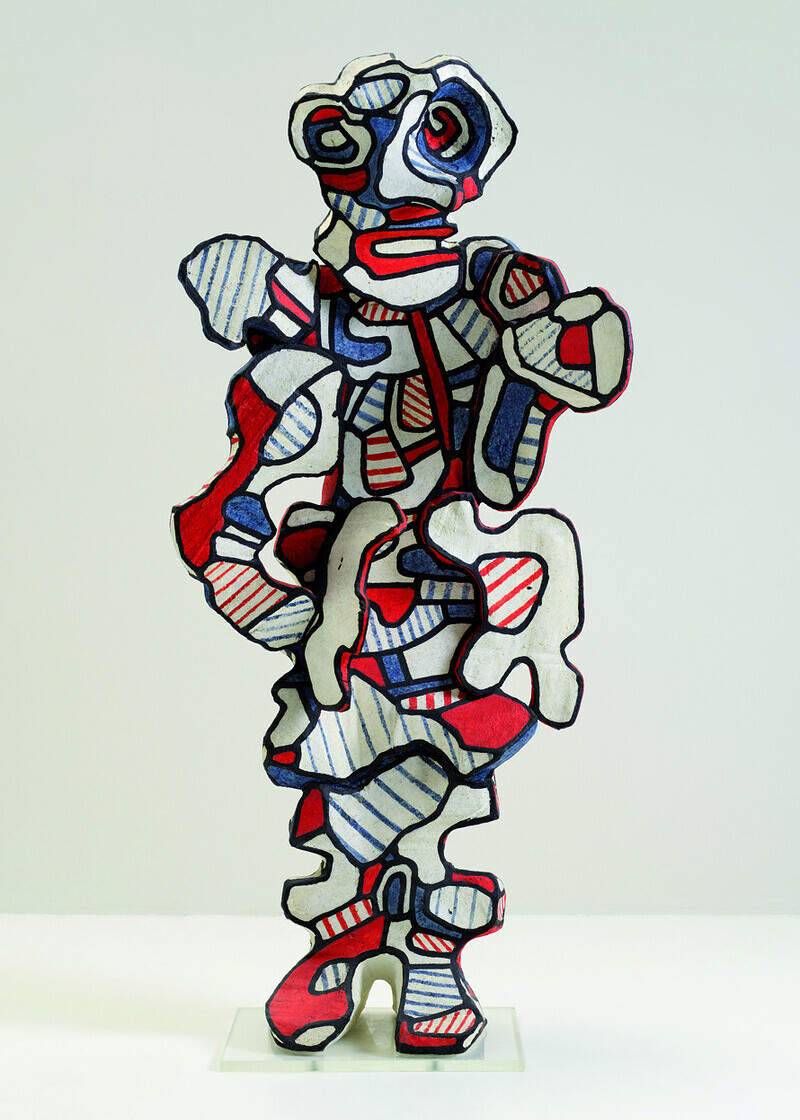Ardent Celebration
February 25–August 21, 2022
Curated by David Max Horowitz, Assistant Curator, Solomon R. Guggenheim Museum, New York
Sponsor: BBK
The Guggenheim Museum Bilbao presents Jean Dubuffet: Ardent Celebration, an exhibition surveying the defining decades of the career of Jean Dubuffet, spanning his first years of committed artistic production in the 1940s through his final fully developed series, completed in 1984. The exhibition is drawn primarily from the rich holdings of the Solomon R. Guggenheim Museum, New York, and supplemented by important selections from the Peggy Guggenheim Collection, Venice.
At the end of World War II, Jean Dubuffet (b. 1901, Le Havre, France; d. 1985, Paris) began exhibiting paintings that defied entrenched artistic values. He rejected principles of decorum and classical beauty, along with pretentions of expertise. Instead, he looked to the commonplace and the unheralded, employing crude materials, mundane subjects, and a style that spurned any outward sign of academic training. In this approach, Dubuffet was challenging norms that he believed obstructed authentic expression and devalued everyday experience. However, his goal was not only to reveal how threadbare cultural conventions were; he also wanted to illustrate the vitality of life freed from them. As he once claimed, “I would like people to see my work as a rehabilitation of scorned values and…make no mistake about it, a work of ardent celebration.”
Dubuffet was committed to this aim throughout his career, though he continually transformed the means he used to pursue it. He tested different mediums, including painting, drawing, collage, lithography, sculpture, and performance. Meanwhile, he moved fluidly between figuration and abstraction, explored multiple compositional strategies, and periodically reinvented his palette. Throughout these changes, Dubuffet’s work stayed grounded in its dedication to sharing new and revitalizing perspectives with viewers, as well as its refusal of convention. Jean Dubuffet: Ardent Celebration will focus on this celebratory impulse, as it offers an overview of the breadth of Dubuffet’s production.



